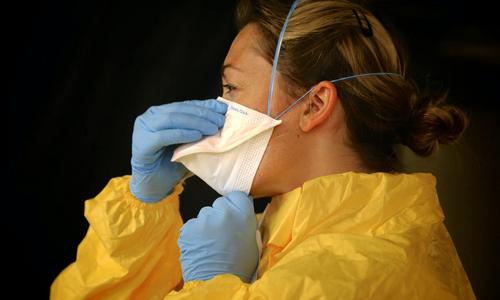News
Report: Rural South Africans at risk due to nursing shortage

Rural South Africans at risk due to nursing shortage. On May 12, as the world observes International Nurses Day, the Rural Health Advocacy Project (RHAP), a division of Wits Health Consortium (PTY) LTD has released a report highlighting the challenges faced by the nursing community program in the rural health system in South Africa as reported by IOL. The report, compiled by Karessa Govender, with inputs from Lungile Gamede and Eunice Montso, highlights the severe shortage of nurses in South Africa, which could potentially jeopardize the realization of Universal Health Coverage (UHC). According to the report, nurses account for 56% of the health workforce in South Africa and are integral to the primary health care (PHC) approach within the district health system framework.
The report states that the country had a shortage of between 26,000 and 62,000 professional nurses in 2020, and by 2030, the demand for nurses in South Africa is estimated to increase to between 305,000 and 340,000. Rural regions in South Africa fare poorly in key health indicators. According to the District Health Barometer 2019/20, rural districts are in the majority among the ten worst-performing districts in maternal and neonatal health.
The report highlights that a persistent shortage of nurses threatens to achieve key sustainable development goal targets such as those concerning maternal and child health. It further points out that the majority of nurses currently employed are over the age of 50, while only 6% are under the age of 30. In addition, the nursing profession is inadequately skilled, and there is an under-supply of 18,000 to 29,000 professional nurses and 17,000 to 33,000 enrolled nurses, according to statistics from the Department of Health in 2020.
The report states that large numbers of nurses are also unemployed due to mismatches between the categories of nurses being trained and the categories of nurses needed, inconsistent and poor-quality training, the reluctance of nurses to work in rural and remote areas, and unfunded vacancies in the public sector. The shortage of nurses in South Africa has already resulted in hospitals in some areas being unable to admit patients who need high and critical care due to a lack of ICU-trained nurses.
The report also highlights that the demographic transition within the nursing profession needs to be addressed, or sustainable development goals such as reducing the mortality target and ending all preventable deaths under five years of age may not be achieved for maternal and infant health.
Across the world, mandatory community service is used to recruit health workers to rural and remote areas. In South Africa, the community service policy is yet to be drafted. The National Department of Health is to review the community service program to determine its value in capacitating rural health systems. However, in recent years, the health department has struggled to meet its obligation to fund the community service program. Rural recruitment and retention thus depend on precarious funding streams from already incapacitated provinces.
The RHAP report recommends that the nursing shortage must be addressed very soon to avoid jeopardizing the realization of UHC and key sustainable development goals. It calls for a comprehensive strategy to increase the number of nurses and nursing education institutions, with a particular focus on rural areas. The report also recommends developing a sustainable community service program, which provides incentives for nurses to work in rural areas and creates an enabling environment for the nursing profession.
Also Read:
Photo by CDC

















